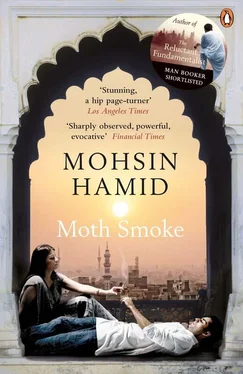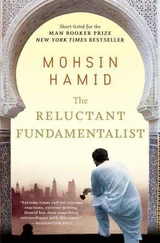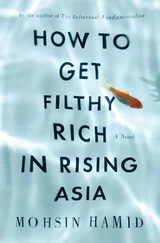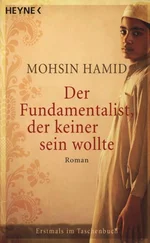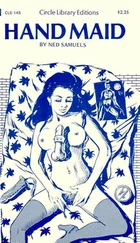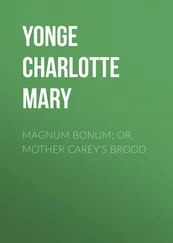Anticipating your Lordship’s request, an investigation was conducted into the role air-conditioning may or may not have played in the lives of the various witnesses expected to testify before your Lordship during the course of this trial. Clearly, the importance of air-conditioning to the events which constitute the substance of this case cannot be overestimated.
The pioneer of academic commentary in this field is Professor Julius Superb. Although his ideas received a cool reception when first aired, they are now widely influential and are discussed not only in doctoral dissertations but also in board rooms and living rooms throughout the land. Indeed, Lahore will not soon forget the Superb paper presented at the Provincial Seminar on Social Class in Pakistan.
Professor Superb walked to the auditorium with a determined smile on his face and a growing ink stain on his shirt pocket, the work of the unsheathed fountain pen he had used to add the final touches to his speech. Those of his students who saw him at the time recalled that he seemed distracted. This did not arouse their curiosity, as the professor was known for his absentmindedness.
Reaching the doors of the auditorium, he attempted to hurl them open, failed, and then struggled unsuccessfully until he realized that he was pushing, not pulling. His awesome mind broke the problem into discrete parts, solved each with the inhuman speed and precision of a supercomputer, and he was inside before fifteen seconds had passed.
Professor Superb then waited in the hushed gloom until it was his turn to speak. When the time came, he strode to the front of the auditorium, mounted the stage, cleared his throat, and delivered a few introductory remarks. Finally, he was ready.
‘There are two social classes in Pakistan,’ Professor Superb said to his unsuspecting audience, gripping the podium with both hands as he spoke. ‘The first group, large and sweaty, contains those referred to as the masses. The second group is much smaller, but its members exercise vastly greater control over their immediate environment and are collectively termed the elite. The distinction between members of these two groups is made on the basis of control of an important resource: air-conditioning. You see, the elite have managed to re-create for themselves the living standards of, say, Sweden, without leaving the dusty plains of the subcontinent. They’re a mixed lot – Punjabis and Pathans, Sindhis and Baluchis, smugglers, mullahs, soldiers, industrialists – united by their residence in an artificially cooled world. They wake up in air-conditioned houses, drive air-conditioned cars to air-conditioned offices, grab lunch in air-conditioned restaurants (rights of admission reserved), and at the end of the day go home to their air-conditioned lounges to relax in front of their wide-screen TVs. And if they should think about the rest of the people, the great uncooled, and become uneasy as they lie under their blankets in the middle of the summer, there is always prayer, five times a day, which they hope will gain them admittance to an air-conditioned heaven, or, at the very least, a long, cool drink during a fiery day in hell.’
Smiling, the professor walked out of the hushed auditorium, his footsteps echoing in the silence.
Most of the students present were either asleep or too bored to pay attention. Others had not heard a word, because Professor Superb eschewed the use of a microphone, thinking himself a great orator when in actuality he had a faint and unsteady voice. However, some of those who were awake and listening in the first three rows later said they were transfixed by the speech. Among them was the professor’s former pupil Murad Badshah, who regularly attended the Provincial Seminar Series.
Murad Badshah was never very fond of ACs. He was a man who liked to sweat, and he sweated well and profusely. In his own opinion, he had supremely athletic pores and a finely honed sweat distribution system which sent trickles of coolness wherever they were most needed.
He also enjoyed the natural aroma that clung to him like pollen to an errant bee.
But Murad Badshah was in the rickshaw business, and he had to accommodate passengers whose opinions (at least on this subject) often differed from his. Accordingly, he bathed three times a day in the summer: morning, midday, and evening. He found bathing almost as effective as sweating in its ability to cool his body, and thought of his combined bath-sweat cooling regimen as a way of augmenting rather than diminishing his body’s natural cooling capacity.
ACs, on the other hand, he considered unnatural and dangerous. Your pores will get out of shape if you rely on ACs for your cooling, he would say. It’s fine as long as you stay in your little air-conditioned space, but one day you might need to rely on your body again and your body won’t be there for you. After all, fortunes change, power blackouts happen, compressors die, coolant leaks.
He loved load-shedding for this reason. It amused him to see the rich people on the grounds of their mansions as he drove past their open gates, fanning themselves in the darkness, muttering as they called the power company on their cellular phones. Indeed, nothing made Murad Badshah more happy than the distress of the rich.
Lazy pores, he would say to himself, and laugh joyously. And the rich people would stare at the retreating lights of his rickshaw on their darkened streets and wonder what anyone could possibly be so happy about when it was so damn hot.
Murad Badshah was a firm believer in the need for a large-scale redistribution of wealth. After Professor Superb’s speech, he vowed to break the barriers that separated the cooled from the uncooled, like himself. Indeed, he used this principle to justify his piracy campaign against yellow cabs, since they were not only taking market share from rickshaws but were air-conditioned as well. He was fond of asking his victims, ‘Why should you be cooled?’ A populist, he rebelled against the system of hereditary entitlements responsible for cooling only the laziest minority of Pakistan’s population, and he embraced Darashikoh as a partner when the latter fell from cooling.
But in the Shah household, in the compound financed by the corrupt millions of Aurangzeb’s father, the hum of the air conditioner was sucking the life out of a marriage. For air-conditioning can be divisive not only in the realm of the political but in the realm of the personal as well.
Aurangzeb loved ACs with a passion unrivaled by his love for any other species of inanimate object. He insisted that his father install central air-conditioning in their new house, that the system be supported by a dedicated back-up generator, and that he have a master remote control for the entire upstairs portion. He was never happier than when his bedroom was so cold that he needed a heavy blanket to avoid shivering in the middle of summer. Conversely, he liked it to be so warm in winter that he could comfortably sleep naked without so much as a sheet. Aurangzeb, more than most men, sought to master his environment.
Mumtaz hated ACs with the sort of hatred one normally reserves for members of other religions and ethnic groups. An AC had almost killed her when she was young. She came home from a school football match (she was a star midfielder with a vicious left foot), took off her clothes in front of the AC, caught pneumonia, and spent two weeks in a hospital with a tube draining her lungs, battling for her life. Although Mumtaz was only fourteen at the time, and although people told her she had brought her illness on herself, she swore never to forgive and never to forget. Having once been betrayed by an AC, she branded them all traitors, and avoided their use except under circumstances of egregious warmth.
And so it was that the marriage between Aurangzeb and Mumtaz was doomed from the start.
Читать дальше
